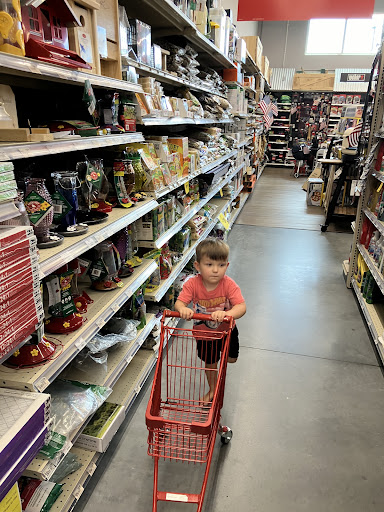Why Knowing How to Unclog a Drain Can Save Your Day (and Your Wallet)
When you need to know how to unclog a drain, time is of the essence. Standing water in your sink or a shower backing up can ruin your morning. The good news is that most drain clogs can be cleared with simple household items and a few basic techniques before they disrupt your day or lead to costly plumber visits.
Quick Solutions for Clogged Drains:
- Baking Soda + Vinegar: Pour 1 cup of each down the drain, wait 30 minutes, then flush with hot water.
- Hot Water + Dish Soap: A great combo for dissolving grease clogs.
- Plunger: Use a sink plunger with water covering the drain for suction.
- Drain Snake: Insert and twist to grab hair and debris from stubborn clogs.
The reality is that most drain clogs can be resolved with simple DIY methods. Natural solutions like baking soda and vinegar often cost less than $5, compared to commercial drain cleaners that range from $10 to $25. More importantly, these gentler approaches won’t damage your pipes the way harsh chemicals can.
This guide will walk you through identifying your clog, step-by-step solutions, and knowing when to call a professional. The helpful team at Lowcountry Ace has years of experience helping Charleston area homeowners solve plumbing challenges. We’ve seen every type of clog and know which solutions work best.
Understanding Why Your Drain is Clogged
Most clogs don’t happen overnight. Your drain usually gives warning signs before it completely stops working. Recognizing these signals is the first step in mastering how to unclog a drain before it becomes a major headache.
- Slow Draining: Water takes longer than usual to disappear, indicating a partial blockage.
- Gurgling Sounds: Trapped air is struggling to get past debris in the pipe.
- Bad Odors: Decomposing organic matter stuck in the drain is releasing unpleasant gases.
- Water Backup: The most obvious sign, where water rises in the sink, tub, or shower instead of draining.
The Culprits Behind Common Clogs
Different drains face different challenges. Knowing the likely cause helps you choose the right solution.
-
Kitchen Sink Clogs: Typically caused by a buildup of grease, oil, and food particles. Grease solidifies in pipes, trapping other debris like coffee grounds, which clump together and create stubborn blockages.
-
Bathroom Sink Clogs: The main offenders are hair, toothpaste, and soap residue. Hair acts like a net, trapping sticky soap scum and creating a dense mat that blocks water flow. The pop-up stopper is a common collection point.
-
Shower and Tub Clogs: Similar to sinks, hair and soap are the primary villains. Long hair easily combines with soap and conditioner residue to form large, hard-to-remove clogs.
-
Main Line Clogs: These are more serious, affecting multiple drains. Common causes include tree roots infiltrating underground pipes or blocked plumbing vents on your roof that disrupt airflow for the entire system.
Understanding what’s causing your clog is half the battle. The helpful team at Lowcountry Ace has seen every type of blockage in Charleston area homes and can confirm that knowing your enemy is key to learning how to unclog a drain successfully.
Your Step-by-Step Guide on How to Unclog a Drain
Now that you know the cause, let’s get to work. Learning how to unclog a drain yourself is empowering and saves money. But first, safety.
Safety Precautions
- Protective Gloves: Essential for keeping hands clean and protected from gunk and chemicals.
- Eye Protection: Crucial when using boiling water or chemical solutions to prevent splashes.
- Hot Water Safety: Hot water is great for grease, but let boiling water cool for a minute to avoid damaging PVC pipes.
- Chemical Drain Cleaners: If you must use them, treat them with respect. They are caustic. Always ensure good ventilation, wear PPE, and never mix different chemical cleaners.
Choosing the Right Method
Most clogs don’t require a professional. Start with the gentlest method and work your way up. Natural solutions are safer for your pipes, family, and the environment.
Method 1: Natural & DIY Solutions for Minor Clogs
These solutions use common household items and are surprisingly effective for most clogs.
- Baking Soda and Vinegar: This classic duo creates a fizzing action that breaks up organic clogs like hair and soap scum.
- Salt and Baking Soda: For tougher clogs, mix equal parts and let it sit overnight. The salt acts as an abrasive.
- Hot Water and Dish Soap: Your best friend for kitchen sink grease. Hot water melts the grease, and soap helps wash it away.
These methods are eco-friendly, cost-effective, and perfect for regular maintenance.
| Feature | DIY (Baking Soda & Vinegar) | Chemical Drain Cleaners |
|---|---|---|
| Cost | Less than $5 (often already in your pantry) | $10 – $25 per bottle |
| Environmental | Eco-friendly, non-toxic | Can be harmful to waterways and septic systems |
| Pipe Safety | Generally safe for most pipes (caution with old copper/brass) | Can corrode pipes, especially older ones, and damage seals |
| Effectiveness | Best for minor to moderate organic clogs, maintenance | Can clear tough organic clogs, but often ineffective on non-organic |
| Safety | Minimal risk (avoid hot water splashes) | Caustic, requires PPE, dangerous fumes, never mix |
| Availability | Readily available in most homes | Available at hardware stores |
How to Unclog a Drain with Baking Soda and Vinegar
The fizzing you see is a reaction between baking soda and vinegar that produces carbon dioxide gas. This agitation helps loosen debris from pipe walls.
- Remove standing water and the drain stopper.
- Pour one cup of baking soda down the drain.
- Add one cup of white vinegar and immediately plug the drain with a stopper or wet cloth to contain the reaction.
- Wait at least 30 minutes—longer for tougher clogs.
- Flush with several cups of hot (not boiling) water.
If the drain is still slow, repeat the process. This method works best on partial clogs and is not effective for toilets or total blockages.
Method 2: Using Manual Tools for Tougher Blockages
When natural remedies fail, manual tools provide the necessary force.
-
Plungers: Use a flat-bottomed sink plunger, not a toilet plunger. Create a proper seal by ensuring the drain is covered with water. Use vigorous up-and-down motions to create pressure waves that dislodge the clog.
-
Drain Snakes (Augers): These flexible cables reach deep clogs. Feed the snake into the drain until you feel resistance. Crank the handle to rotate the cable, which either breaks up the clog or hooks it for removal. Pull it out slowly. Always wear gloves!
-
Clearing the P-Trap: The U-shaped pipe under your sink is a common spot for clogs. Place a bucket underneath, loosen the slip nuts, and remove the trap to clean it out manually. Reassemble securely.
The helpful team at Lowcountry Ace has extensive experience with all types of plumbing tools and can help you choose the right equipment for your situation.
Preventing Future Clogs: A Maintenance Guide
An ounce of prevention is worth a pound of cure. Establishing good habits and a regular maintenance routine can keep your pipes flowing smoothly and save you from frantically googling how to unclog a drain.
What Never to Pour Down the Drain
Your drains aren’t garbage cans. To prevent clogs, avoid putting these items down them:
- Grease, Fats, and Oils: These solidify in pipes and act like glue for other debris. Pour cooled grease into a disposable container and throw it away.
- Coffee Grounds: They clump together and create dense, sludgy blockages.
- Eggshells and Fibrous Vegetables: Eggshell membranes stick to pipes, and fibrous foods like celery can tangle in garbage disposals.
- “Flushable” Wipes: They don’t break down like toilet paper and are a primary cause of major sewer blockages.
Drain strainers are your best friend for prevention. These inexpensive devices catch hair and food before they enter your pipes. Clean them regularly.
Creating a Regular Cleaning Schedule
A little preventative maintenance goes a long way.
- Monthly Hot Water Flush: For kitchen drains, slowly pour a pot of hot water down the drain to melt away minor grease buildup.
- Garbage Disposal Care: Always run plenty of cold water when using your disposal and for 15 seconds after. Cold water helps solidify grease so it can be chopped up and flushed away.
- Septic System Care: If you have a septic system, stick to natural, septic-safe methods like baking soda and vinegar. Harsh chemicals can disrupt the beneficial bacteria your system needs.
How Often Should I Perform Drain Maintenance?
- Monthly: Perform a hot water flush and a preventative baking soda and vinegar treatment on all drains to break down buildup and keep them fresh.
- Annually: Consider a preventative drain snaking for high-use drains to clear minor buildup before it becomes a major blockage.
- When to Get a Professional Inspection: Watch for recurring clogs, slow drainage across multiple fixtures, or persistent sewer odors. These can indicate deeper issues that need a pro.
For all your plumbing maintenance needs, the helpful team at Lowcountry Ace is here to guide you. You can find more information about Plumbing Supplies on our website.
When to Call a Professional Plumber
While learning how to unclog a drain is a valuable skill, some jobs are best left to the pros. Recognizing when to call for help can save you from bigger headaches and more expensive repairs.
Call a plumber if you experience:
- Stubborn Clogs: If you’ve tried DIY methods, plunging, and snaking with no success.
- Multiple Clogged Drains: When several fixtures back up at once, it likely points to a main sewer line problem.
- Recurring Clogs: If a drain clogs repeatedly after you’ve cleared it, there may be an underlying issue like tree roots or pipe damage.
- Strong Sewer Gas Odors: This can indicate a serious problem with your sewer line or vent system.
- Water Damage: Stains on ceilings or walls near plumbing could mean a burst or leaking pipe.
Sometimes it’s a matter of not having the right tools or feeling unsafe with the process. There’s no shame in calling a professional.
Advanced Tips on How to Unclog a Drain That’s Stubborn
When you’re facing a main line clog, the approach is different. The telltale sign is multiple fixtures backing up simultaneously. For example, flushing a toilet causes water to rise in the shower.
Professionals tackle these issues using specialized equipment. They can access the main sewer line through clean-outs and use powerful, motorized augers to cut through tough obstructions like tree roots. For complex problems, they have methods to diagnose the exact location and nature of the issue, such as a break or collapse, without guesswork.
Attempting to clear a main line clog without the right expertise can lead to significant pipe damage. For professional-grade tools and advice, the helpful team at Lowcountry Ace is always ready to help. Find your nearest Plumbing Supply Shop Near Me for all your plumbing needs.
Frequently Asked Questions about Unclogging Drains
When it comes to how to unclog a drain, we get plenty of questions from Charleston area homeowners. Here are answers to the most common ones.
Are chemical drain cleaners safe for my pipes?
It depends. Commercial drain cleaners can be effective on tough organic clogs, but they pose significant risks. The caustic chemicals can damage both plastic (PVC) and metal pipes, especially older ones, leading to corrosion and leaks. They are also considered household hazardous waste by the U.S. Environmental Protection Agency (EPA), can harm septic systems, and produce dangerous fumes. For background on how these products work and their risks, see Drain cleaner and Household hazardous waste.
We recommend chemical cleaners only as a last resort after natural and manual methods have failed. If you use one, follow all safety instructions precisely, ensure proper ventilation, and never mix it with other cleaners. If one or two applications don’t work, it’s time to call a professional.
Can I use the baking soda and vinegar method on a garbage disposal?
Yes, this method is great for cleaning and deodorizing a garbage disposal. Pour a half-cup of baking soda followed by a cup of vinegar down the disposal. Let it fizz for 15-30 minutes, then flush with hot water. Afterwards, run the disposal for a minute with cold water flowing to clear any remaining debris. Always use cold water when operating your disposal to prevent grease from melting and coating your pipes.
What are the most important safety precautions to take?
Safety should always be your top priority. Here are the essentials:
- Wear PPE: Always use protective gloves and safety glasses to shield yourself from gunk, chemicals, and splashes.
- Handle Hot Water Carefully: Pour slowly to avoid scalding. Let boiling water cool for a minute before using it in PVC pipes.
- Ensure Good Ventilation: When using any chemicals, open windows and use fans to circulate fresh air.
- Never Mix Cleaners: This is the golden rule. Mixing different chemicals can create toxic gas or even explosive reactions.
- Read All Instructions: Product labels and tool manuals contain vital safety and usage information.
Conclusion
Learning how to unclog a drain is a valuable skill for any homeowner. From the simple fizz of baking soda and vinegar to the manual force of a drain snake, you now have a range of solutions for different blockages. By starting with gentle, natural methods, you protect your pipes, your wallet, and the environment.
Prevention is your best strategy. Simple habits like using drain strainers and properly disposing of grease can save you from future plumbing emergencies. It’s also crucial to know your limits and recognize when a problem requires a professional.
The confidence that comes from handling your own home maintenance is empowering. You’ve learned not just how to fix a clog, but how to prevent them and when to seek help. For all the tools and expert advice you need, the helpful team at Lowcountry Ace is ready to assist the James Island, Folly Beach, and greater Charleston, SC community.
Visit Lowcountry Ace Hardware for your plumbing needs – we’re here to help you tackle your next home project with confidence.
Lowcountry Ace Hardware: Your one-stop shop for home improvement. We offer quality products from trusted brands and expert advice from our experienced staff. Located on James Island, visit us for tools, hardware, fishing gear, power tools, building materials, grills & smokers, electrical and plumbing supplies, and more.
















